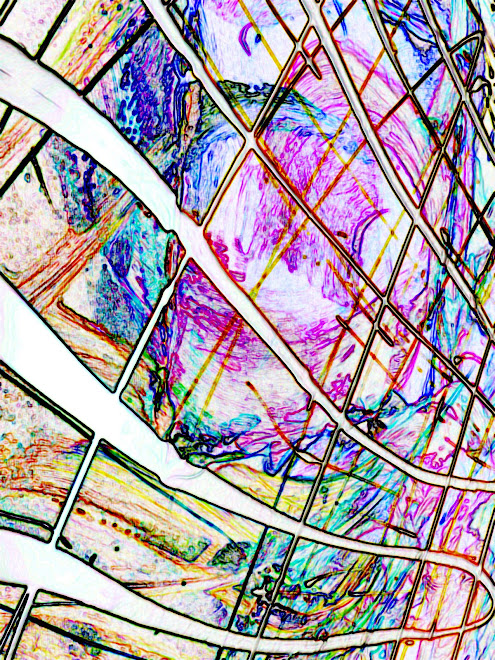After reading the first installment of Henry Jenkin’s interview with Axel Bruns I believe I have finally gotten my head around the concept of produsage. More importantly however I now understand why it is useful to have a term that encapsulates a wealth of concepts that essentially embody the same (or very similar) ideas. Let me try and share some of this understanding.
We are witnessing the dawning of a new age, where produsage is being born. Yet many of us remain obliviously ignorant. It amazes me that people still cling avidly to traditional business and communication models when there is such a dominant consensus that humanity is moving beyond the previously separate forms of producer, distributor, and user/receiver/consumer [Flew 2005; Bruns 2007]. The emergence and adoption of technologies like open source software (see also OSI) and Web 2.0 are enabling each of us to realise our potential as involved, interactive, and intelligent participatory beings [Jenkins 2002; Bruns 2008]. Slowly, we are becoming consciously aware of our new reality.
In short, for those of you who don’t know (or have never heard of) what produsage is, it is an umbrella term coined by Axel Bruns that describes the overarching new trend of user-led content creation/production. Common examples of produsage include wikis (particularly Wikipedia), open source software (like FireFox and Linux), citizen journalism, and online gaming communities (see Second Life and/or The Sims and/or W.O.W). Produsage.org defines produsage as the act of produsers (a hybrid of the words production and user), and has identified four key principles that are prevalent in all produsage environments:
- open participation and communal evaluation
- fluid heterarchy and ad-hoc meritocracy
- unfinished artifacts and continuing processes
- common property and individual rewards
For greater depth and exploration of these principles please see Produsage.org or Bruns’s companion book Blogs, Wikipedia, Second Life and Beyond: From Production to Produsage.
Jenkins [2008] has described the term produsage as “somewhat awkward” while others (myself previously included) have wondered whether it is just another industry related buzz word that will fizzle into nothing. Either way this lack in eloquence does not diminish the need for an alternative way to express the resurgence of commons-based approaches to production and use that is occurring [Bruns 2007; Produsage.org]. Perhaps it is this awkwardness, or because we are slow in adapting to change, that produsage (the word) has not (yet) taken off. This semester I have been increasingly convinced that “produsage” and “produser” have in fact earned their place our dictionaries, and our vocabularies.
Oxymoronically the shift in the information age towards digitisation, convergence, and participatory culture (reflected most significantly in the differences between Web 1.0 and Web 2.0) has been gradual [Bruns 2008; Jenkins 2008]. Lacking a revolutionary upheaval, we have tried to fit these changes and new developments into our pre-existing conceptual frameworks [Dwyer 2005; Venturelli 2005; Bruns 2008]. Unfortunately this practice is largely counterproductive, particularly in an era where innovation is a necessary part of the evolutionary process [Dwyer 2005; Venturelli 2005]. Bruns [2008] insists that “if we continue to use the old models, the old language to describe the new, we lose a level of definition and clarity which can ultimately lead us to misunderstand our new reality”.
Although many of us may not even realise we are taking part in produsage, we all (well, those of us comfortably sitting on this side of the digital divide anyway) have the potential to do so. It is our willingness to share content and intellectual property that makes this “iterative, ongoing, evolutionary process” of produsage work [Bruns 2008]. Our ability to remix, repurpose, and recontextualise available information, as well as contribute our own, is the real power behind the palimpsest of knowledge that is the World Wide Web [Bruns 2008].
Bruns [2008] imparts that “it doesn’t matter so much what we call it in the end, but a term like ‘produsage’ provides a blank slate which we can collectively inscribe with new meanings, new shared understandings of the environments we now find ourselves in”.
Other Bloggers with insightful posts on this topic:
REFERENCES
Bruns, A. 2007. The Future Is User-Led: The Path towards Widespread Produsage. http://produsage.org/files/The%20Future%20Is%20User-Led%20(PerthDAC%202007).pdf (accessed April 25, 2008).
Bruns, A. 2008. Chapter One: Introduction. In Blogs, Wikipedia, Second Life, and Beyond: From Production to Produsage, A. Bruns, 1-7.
Bruns, A. 2008. KCB201 Virtual Cultures: Week Eight Podcast. http://www.slideshare.net/Snurb/kcb201-week-8-slidecast-produsage?src=embed (accessed April 25, 2008).
Dwyer, J. 2005. Communication Foundations. In Communication in Business: Strategies and Skills, 3rd ed., J. Dwyer, 3-97.
Flew, T. 2005. Creative Industries. In New Media: An Introduction, 2nd ed., T. Flew, 115-138.
Jenkins, H. 2002. Interactive audiences. In The New Media Book, D. Harries, 157-170.
Jenkins, H. 2008. From Production to Produsage: Interview with Axel Bruns. In The Official Weblog of Henry Jenkins, H. Jenkins. http://henryjenkins.org/ (accessed May 11, 2008).
Produsage.org. 2008. From Production to Produsage: Research into User-Led Content Creation. http://produsage.org/ (accessed May 11, 2008).
Venturelli, S. 2005. Culture and the Creative Economy in the Information Age. In Creative Industries, ed. J. Hartley, 391-398.




No comments:
Post a Comment